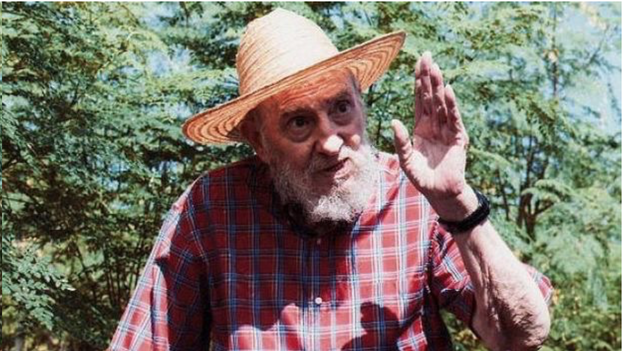
![]() 14ymedio, Generation Y, Havana, 3 July 2017 — For decades Cubans were bombarded by official propaganda filled with materials about Fidel Castro’s supposed genius. In these vindications he was not only a father, but also a strategist, visionary, pedagogue, farmer and cattle rancher, among other lofty characteristics and pursuits. However, that prototype of patriarch, scientist and messiah had some “soft spots.”
14ymedio, Generation Y, Havana, 3 July 2017 — For decades Cubans were bombarded by official propaganda filled with materials about Fidel Castro’s supposed genius. In these vindications he was not only a father, but also a strategist, visionary, pedagogue, farmer and cattle rancher, among other lofty characteristics and pursuits. However, that prototype of patriarch, scientist and messiah had some “soft spots.”
Over time, many of us came to understand that the Maximum Leader was not as outstanding as they wanted to make us believe. Counting against him, he had several capital defects: with a complete lack of any capacity for self-criticism, he never engaged in debate, and he was not given to irony or humor, the most difficult and elevated scales of the human intellect.
Despite all the ill-advised decisions he made, Castro died without saying “I’m sorry,” contrary to those who say “to err is human but to rectify is wisdom.” My generation waited in vain for his apology for the high schools in the countryside, and other sad educational experiments, just was we waited for a mea culpa for the victims of the Five Grey Years, the Military Units in Aid of Production (UMAP) or the Stalinist purges.
Nor was controversy the terrain of the Commander-in-Chief. He shunned diatribe and prepared himself with selected data and later spewed it out over unsuspecting foreign journalists and crowds gathered in the Plaza of the Revolution. He liked them to say: “What a well informed man!” When in reality he was only a ruler with access to information that was not allowed to his citizens.
Castro drowned, in long hours of discourse, what could have been sound political talk and a constructive discussion to improve the nation. We had to worship him or applaud him, never contradict him. He never ceded the spotlight, fearing perhaps that we would realize that “the king is naked” or that the guerrilla had “not the least idea” of what he was talking about.
All the times the late leader approached controversy he was caught short. When he exercised that egregious sport that is verbal fencing, he was beaten in the first act.
All the times the late leader approached controversy he was caught short. When he exercised that egregious sport that is verbal fencing, he was beaten in the first act. His way of dealing with these defeats was to overwhelm the other with long speeches or to get his acolytes to destroy the reputation of his opponent. He was mediocre as a gladiator of the word.
Nor were jokes his forte. Although Castro was the target of thousands of humorous stories, at no time in his life did he demonstrate a gift for humor. In a country where there is always a parody waiting to break the surface, that corpulent character – dressed in olive green with his serious and admonitory phrases – was the constant butt of mockery.
His death has highlighted that lack of charming banter. The man, who in life was the target of thousands of jokes about this death and his presumed arrival in hell, has been dead for over half a year without popular humor deigning to mention him. Not even Pepito, the eternal child of our stories, has wanted to “portray” the deceased.
Sad is the fate of those who are not remembered in a single joke. Poor is the man who never said “I was wrong,” who never knew the pleasure of engaging in arguments with an adversary, and who couldn’t even manage to taste the grace of humor.
